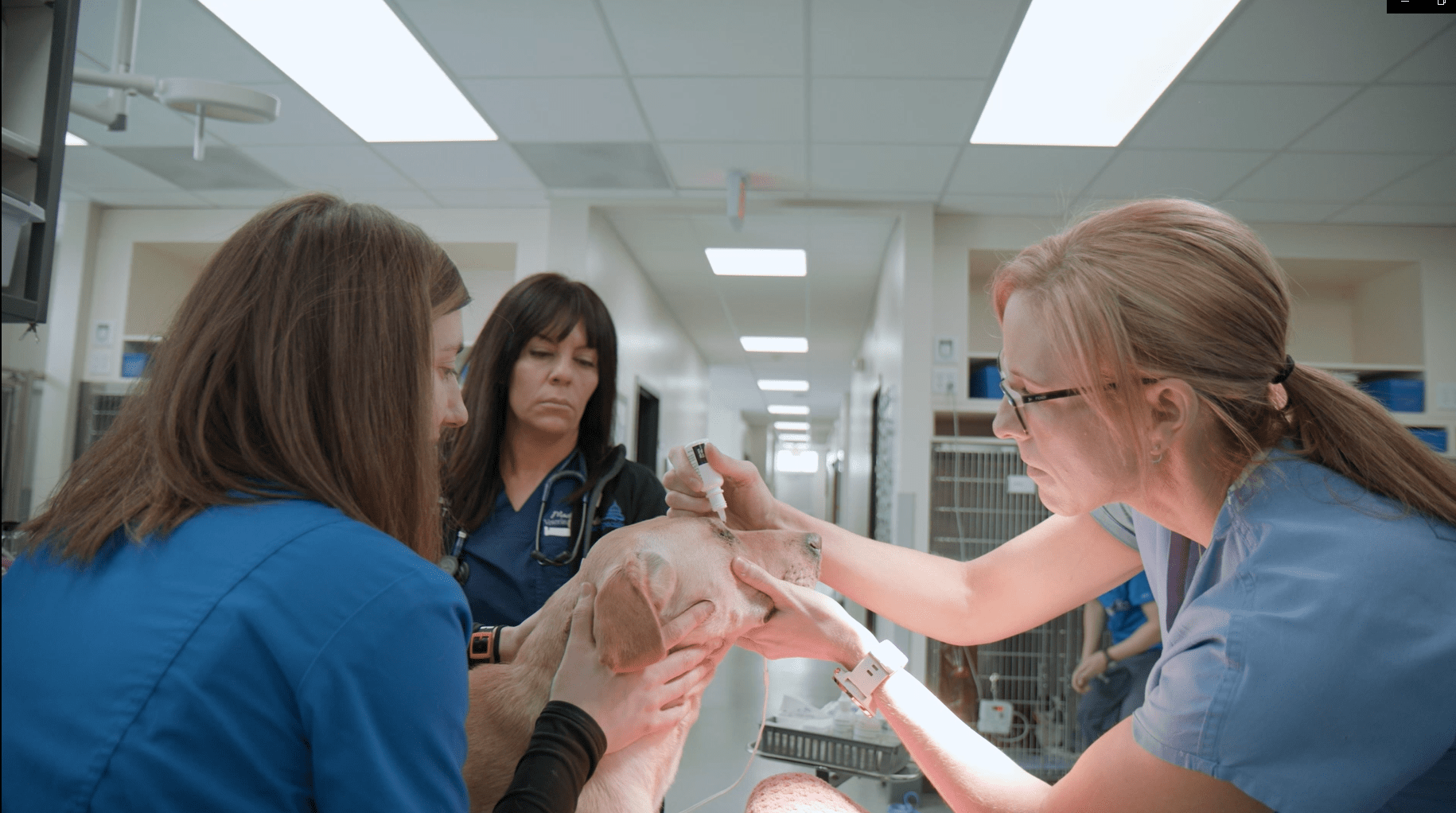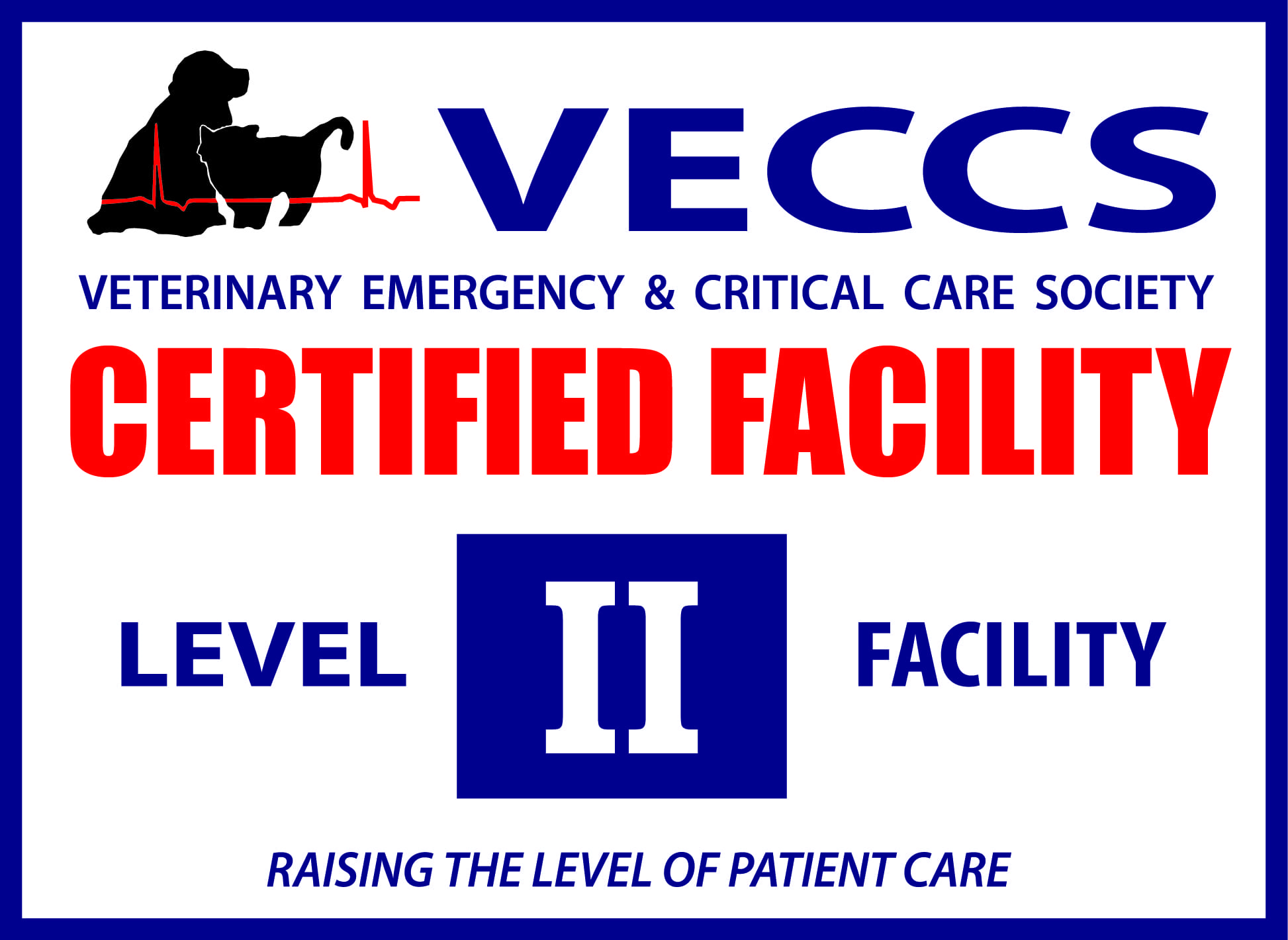MVS maintains a fully staffed emergency, trauma and critical care facility that accepts both walk-in and referral emergencies. We specialize in emergency medical and surgical care of small animals, especially patients requiring more intensive and long-term critical care management.
We are proud to be a certified through the Veterinary Emergency and Critical Care Society (VECCS) as a Level II Certified Facility. This means we meet set guidelines published by VECCS that include but are not limited to:
- Having 24-hour acute care with a medical staff that has the necessary training to provide emergent and critical patient care
- Having blood products and emergency medications available for immediate use
- Being capable of providing nutritional support through a feeding tube
To learn more about our VECCS Certification, you can click on the logo below.
Services & Procedures
- Canine and feline blood bank available
- Complete laboratory diagnostics which allow immediate blood test results.
- Immediate emergency medical imaging.
- Emergency surgical procedures including wound repair, GDV, C-section, foreign body removal, and abdominal exploratory.
- Endoscopic retrieval of gastric foreign bodies
- Complete in-hospital pharmacy with specialized inventory.
- Advanced patient monitoring techniques for emergency/critical care and surgery.
- Telephone consults with your veterinarian 24/7/365.
- The emergency service works closely with MVS’ other veterinary specialists in: Surgery, Internal Medicine, Ophthalmology, Dermatology, Neurology and Oncology.
- Sorry, at the time we do not see exotic species (cats and dogs only).
When should I seek emergency care?
While not every emergency is on this list, here are many symptoms we consider to require emergency care:
- Acute blindness
- Allergic reactions
- Bleeding from the eyes, nose or mouth
- Blood in urine or straining or unable to urinate
- Difficulty breathing
- Disorientation or collapse
- Distended/swollen abdomen
- Ingestion of (or suspicion of swallowing) poisons, antifreeze, medications or household cleaners
- Massive bleeding from a wound
- Non bearing weight on an individual limb
- Physical trauma or animal attack
- Seizures
- Signs of extreme pain such as whining or shaking
- Squinting or painful eyes
- Unconsciousness
- Vehicular trauma
- Vomiting and/or diarrhea
- Weak or unable to use hind limbs
If you are concerned about your pet at any time, call us at 608-274-7772 and a nurse can discuss your pet’s symptoms.




